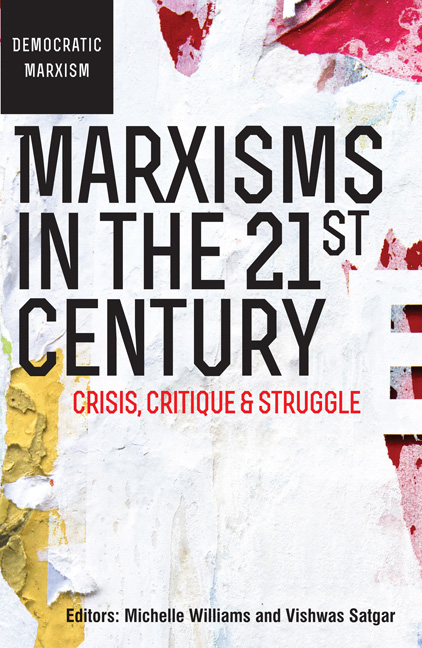Conclusion
Published online by Cambridge University Press: 21 April 2018
Summary
For the past four decades historical Marxism as a body of social thought and radical practice has been systematically attacked. The cold war, the triumphalism of the liberal world after the collapse of the Soviet Union, the spread of a hegemonic common sense naturalising financialised capitalism (in everyday life as credit-driven consumption and as unadulterated greed), the prejudice of the liberal media and the weaknesses of authoritarian vanguardist Marxism have all contributed to discrediting Marxism and even erasing its presence in public discourse, in many countries. However, the deep anti-Marxism of our time is unhinging in the midst of the deepest and most multifaceted systemic crises of modern capitalism. Not only are the limits and contradictions of globalised capitalism apparent for all to see, but the making of deep inequalities, hunger, mass unemployment, ecological crisis and growing violence are reaffirming a class politics and understanding of our social world.
The spectre of Marxism is back but this time freed from the cage of orthodoxy or dogma. Although those who believe Marxism is always right, does not have weaknesses and has all the answers (‘zombie Marxists’), will continue to exist and will also make an appearance in this conjuncture. The world, however, is no longer starry-eyed in the presence of such a radicalism. In the ferment of transnational activism, within the World Social Forum and with the rise of a new Global Left, a heterodox anti-capitalism has come to the fore, open to various resources of critique, imagining different ways of exiting capitalism and consciously seeking a democratic way forward rather than the ‘correct line’. A non-dogmatic and democratic Marxism is finding its way in this context. This volume has provided a glimpse of such a Marxism: its new axes of renewal, themes and challenges.
BEYOND VANGUARD MARXISM
Marxism being in crisis is not new. Even its death has been proclaimed many times in the last century. At the beginning of the twentieth century, the first crisis of Marxism emerged in the context of mass working-class politics and movements. The looming onset of World War I and positions on imperialist war – reform versus revolution, vanguard versus mass party – were all sources of deep contention and contributed to the crisis of Marxism at that time. After 1917, the Russian Revolution spawned a society that became an object of critical enquiry on the Left.
- Type
- Chapter
- Information
- Marxisms in the 21st CenturyCrisis, Critique & Struggle, pp. 281 - 286Publisher: Wits University PressPrint publication year: 2013

